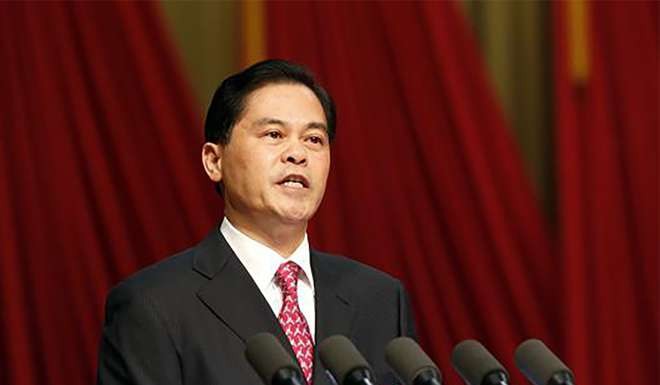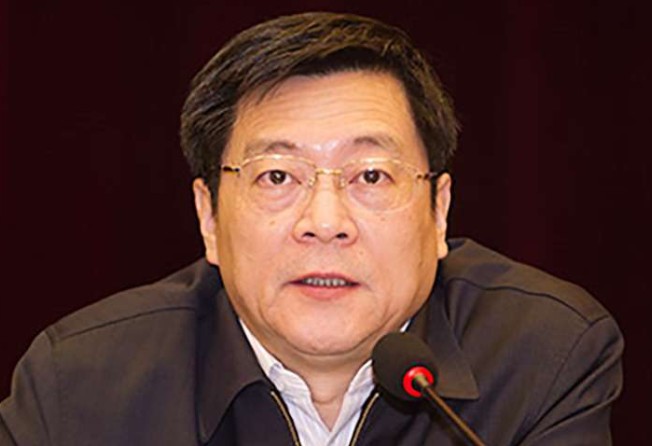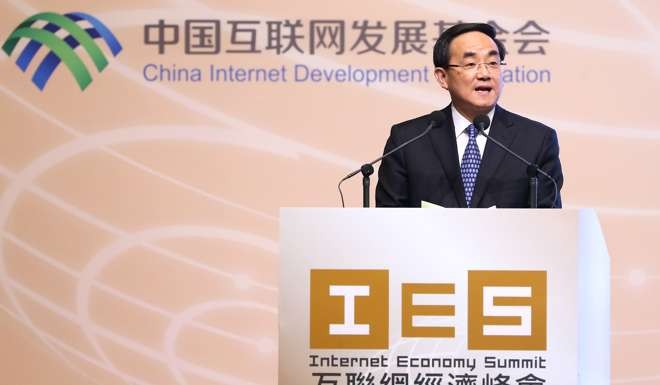
The Xi-era Shanghai talent leaping up the Chinese Communist Party’s job ladder
A clutch of officials from the president’s stint in the city have landed in top posts, continuing financial hub’s tradition of influence on political stage

Shanghai-based officials continue to show their influence on the national political stage through several senior appointments unveiled ahead of the Communist Party’s five-yearly leadership reshuffle late next year.
Despite President Xi Jinping spending less than a year as party chief of Shanghai, several of his colleagues from that era have been promoted to key jobs in the last few months after rising from modest positions.
Since the founding of the People’s Republic in 1949, Shanghai has been the talent pool of senior officials in the party.
Such figures range from Chen Yun, a Shanghai native and the second most powerful man in the party in the Deng Xiaoping era, to former president Jiang, who spent most of his career in the city.
Shanghai is also regarded as a power base of former president Jiang Zemin, who continues to wield influence on the national political stage. Like Zhejiang and Fujian provinces, where Xi spent much of his career, the financial hub has become another source of senior officials for the president.
Chen Hao, 62, was catapulted from the relative obscurity of a deputy chief of the All-China Federation of Trade Unions to become vice-governor and then governor of Yunnan province in 2014, two years after Xi became the Communist Party’s general secretary.
In August, Chen was named the province’s party chief, an appointment all the more unusual because he is neither a full nor alternate member of the party’s Central Committee, putting him outside the top 300 or so members.
In the 15 years leading up to Chen’s appointment, all those who filled Yunnan’s top job were already Central Committee members when they took over the position.

Chen was one of seven deputy chairs at Shanghai’s municipal legislature during Xi’s stint in the city nine years ago. Xi took over Shanghai’s helm after party boss Chen Liangyu fell from grace in a corruption investigation.
Shanghai native Du Jiahao was parachuted into the key province of Hunan in 2013, coming in from the cold of Heilongjiang where he was sent in 2007 in the aftermath of Chen Liangyu’s downfall.
Du, 61, was governor of Hunan before taking over as provincial party chief in August from Xu Shousheng, who stepped aside two years before the official retirement age. Xi and Du crossed paths in Shanghai when Du was party boss of Pudong district.
Unlike Chen Hao, Du is an alternate member of the Central Committee but his predecessors over the past two decades were all full members before taking on the job. Hunan party chief is also a springboard for higher office, with Zhang Chunxian going on to become a Politburo member and Zhou Qiang becoming the country’s top judge.
The third of the rapid-rising trio is Xu Lin, 53, who was promoted to become the top internet regulator in June.

Xu was a low-ranking civil affairs official in Shanghai in 2007 but two months after Xi’s arrival, he advanced to membership of the party’s Standing Committee in the city. Nine months after that, he was the party chief of Pudong district. By 2013, Xu was Shanghai’s propaganda chief. He was reassigned as deputy director of the Cyberspace Administration of China last year, paving his way to take the role of overseeing the internet. But, Xu, too, is not yet on the Central Committee.
All three promotions come in the lead-up to the party’s five-yearly national congress next year, when the Central Committee will undergo a major reshuffle.
Up to 11 seats in the 25-strong Politburo will also be vacated, including up to five in the Politburo Standing Committee.
Chen Hao, Du and Xu are among the front runners to become full Central Committee members. They also add to Shanghai’s long-standing, influential role in national politics.